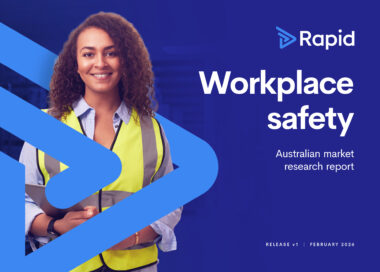New research from the Monash Business School has found that throughout the job recruitment process women believe artificial intelligence assessments reduce bias, while men fear it removes an advantage.
Professor Andreas Leibbrandt, from the Department of Economics, investigated how artificial intelligence recruitment tools affect existing biases in recruitment and argued whether there was a way to dismantle the barriers that prevent underrepresented groups from reaching their full potential in achieving their desired roles.
“People in minority groups have inferior market outcomes, they earn less, they have a harder time finding and keeping a job. It’s important to understand why that is the case so that we can identify and remove the barriers,” Professor Leibbrandt said.
One major hurdle lies in the recruitment process itself, which is undergoing a shift alongside the rise of AI. “We know that a large majority of organisations now use AI in their recruitment process,” he said.
To uncover recruitment barriers, the first-of-its-kind study focused on the two key areas of applicant behaviour and recruiter bias.
In one field experiment, more than 700 applicants for a web designer position were informed whether their application would be assessed by AI or by a human.
“Women were significantly more likely to complete their applications when they knew AI would be involved, while men were less likely to apply,” he said.
A second experiment focused on the behaviour of 500 tech recruiters.
“We found that when recruiters knew the applicant’s gender, they consistently scored women lower than men. However, this bias completely disappeared when the applicant’s gender was hidden,” he said.
When recruiters had access to both the AI score and the applicant’s gender, there was also no gender difference in scoring.
“This finding shows us they use AI as an aid and anchor – it helps remove the gender bias in assessment.”
Professor Leibbrandt said a crucial aspect of the study was that, in contrast to the vast majority of current research, it focused on the human interaction with AI, rather than the algorithm behind it.
“My research isn’t just about dismantling bias, it’s about building a future of work where everyone has the opportunity to thrive,” he said.
Professor Leibbrandt is exploring other frontiers in the fight for workplace inclusion.
One project will test the impact of informing job applicants who are being assessed by AI about the potential bias in AI training data.
He also plans to tackle the concept of ‘narrative discrimination’ where unconscious stereotypes influence hiring decisions in the tech industry, as well as explore the potential for bias in remote work settings.
- ENDS -
MEDIA ENQUIRIES
Helena Powell
Media Communications Officer, Monash University
M: +61 474 444 171
GENERAL MEDIA ENQUIRIES
Monash Media
T: +61 (0) 3 9903 4840
For more Monash media stories, visit our news and events site

